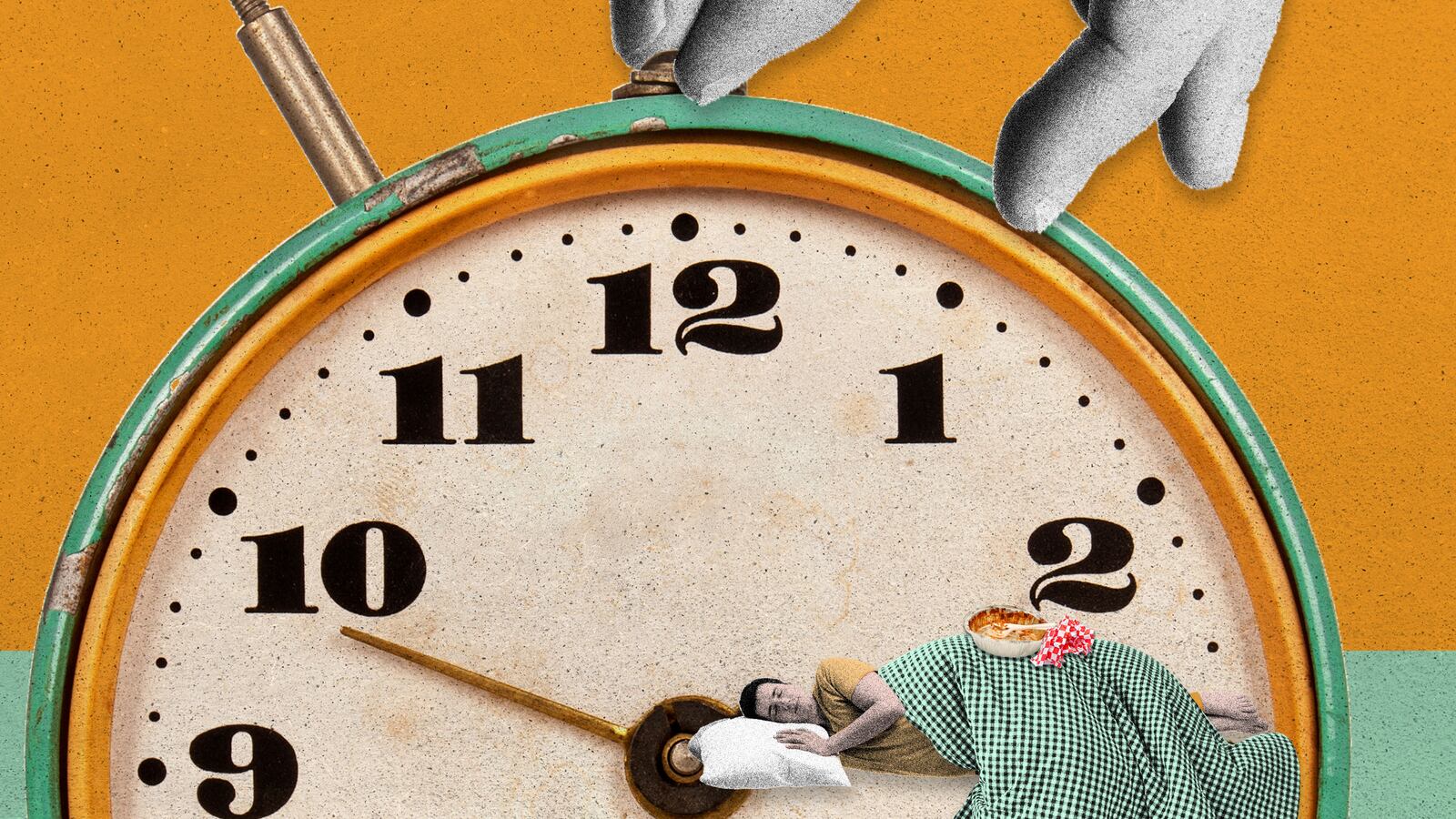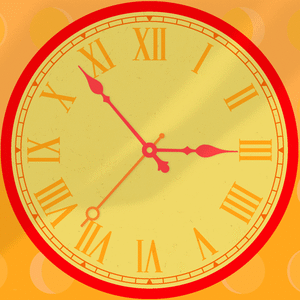Another November, another daylight saving time. The one-hour difference could make you feel groggy, grumpy—and affect when you eat.
But the shift in sleep from daylight savings resolves itself quickly, and the metabolism can adjust fairly quickly. With a long-term change in sleep and eating habits, your circadian rhythm can be deeply affected.
That's what the Nobel Prize in Physiology and Medicine was awarded for last year. Three American scientists won the prize for their discovery of the genes that control circadian rhythms, otherwise known as our biological clock.
Their work, done in the 1980s and 1990s, was the foundation for an explosion of research into the ways that cells and systems in the body cycle over the light and dark rotations each day. One area of interest? Metabolism—the process of conversion of food to fuel, proteins, fats, and genetic material.
“A huge amount of metabolism is not flat—it moves along the clock,” Paolo Sassone-Corsi, director of the Center for Epigenetics and Metabolism at the University of California Irvine, told The Daily Beast.
When Sassone-Corsi talks about the movement of metabolism and how it changes throughout the day, he’s referring to the activity of everything from the metabolic proteins and genes in individual cells to major organ systems that break down food.
The activity of those cycles matter for our understanding of metabolic diseases, like obesity and Type II diabetes—disrupted circadian rhythms are a risk factor for both—and though the research is still in its nascent stages, it might indicate that the times of day you eat could be a factor in weight gain and weight loss.
“There is certainly more and more data to suggest that when we eat has an important role in how we maintain both metabolic health and body weight over the long run,” Jonathan Cedernaes, a senior researcher studying sleep and circadian rhythms at Northwestern University, told The Daily Beast.
It’s hard to control what people eat enough to conduct a strong research study in humans, so a lot of our information about the relationship between timing of food intake and weight comes from mice. In one study, mice who were fed during their ‘night’ in the lab ( mice are nocturnal, so their night is actually equivalent to our day) gained more weight than mice fed during their ‘day’ (our night).
That link between timing and eating seems to work in humans too. People who eat earlier in the day report losing more weight than people who eat later in the day, for example.
Eating during the time in the circadian cycle that the body thinks it’s supposed to be asleep means certain systems in the body aren’t primed to handle food. Glucose tolerance, the ability to clear glucose from the blood, is higher in the morning than it is at night, and the stomach empties more slowly during the night than during the day. Levels of leptin, which suppresses hunger, peak during the night. In nocturnal rodents, the genes that control the absorption of nutrients in the intestine cycle from day to night, and proteins involved in the breakdown of cholesterol and in liver function (which are important for processing meals) are more active when it’s dark.
The relationship goes in the other direction, as well: Meals outside of the body’s daytime can throw off circadian rhythms, and a shifted body clock comes back to affect metabolism. Sleep deprivation, staying active at night, or working night shifts also nudge circadian cycles out of alignment. People who work night shifts, for example, are more likely to develop obesity and diabetes. Mice who are genetically modified to remove genes that control the circadian clock have impaired metabolism, underscoring the critical relationship between the two.
“We have epidemiological data, and that’s been backed up by animal studies where we can use genetic tools,” Cedernaes said.
But while the research so far has been compelling, scientists are quick to note that mice aren’t people (and people have complicated genetics, lifestyles and environments), so just eating at a certain time of day isn’t likely to be a magic cure or weight-management quick fix.
“The data in the animal models is very clear that specific eating times are good things to lose weight, and increase muscle. But what we know in human samples and in human experiences is still limited. I would be optimistic, but we’re still cautious. There are probably beneficial aspects, but not much as been done to understand if there are any detrimental effects,” Sassone-Corsi said.
There’s more research needed to connect the dots between what we see in mice and what we see in humans, and to understand how the complexities of human diet and lifestyle interact with the metabolism and circadian cycles. “We’re just starting to understand the role that genetics might have,” Cedernaes said. “We need to see how what we see in animal models corresponds to our genetic makeup, and what we see in humans.”
For people who have metabolic diseases, or might be at risk for metabolic diseases, paying attention to the timing of meals might be a useful tool. It’s not likely to be dangerous to be more intentional about meal times, even though there’s not a ton of evidence to say it’s definitely beneficial—but being too strict could cause problems if it starts to affect someone’s social life, for example, or other aspects of life that are also important to overall health, Cedernaes said.
“We’re all different,” Cedernaes said. “One size doesn’t fit all. In general, it’s better to eat when it’s light out, but there’s always a risk that when you emphasize something with nutrition and diet, people will go to extremes to follow it.”







